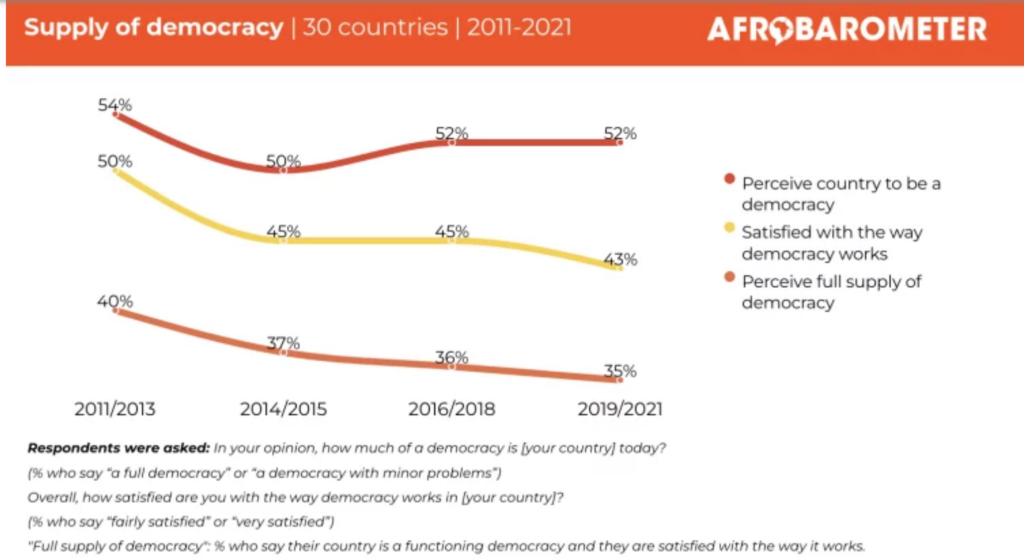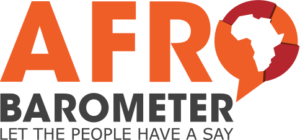
The last several years in Africa have been marked by both encouraging democratic highs and troubling anti-democratic lows, according to the latest Afrobarometer survey:
- Bright spots include the Gambia’s successful 2021 presidential election, the 2021 ruling-party transition in Zambia, and the first democratic transfers of power in Niger (2020/2021) and Seychelles (2020). We can add the February 2020 decision by Malawi’s Constitutional Court to annul the results of the country’s flawed 2019 presidential election and call for a new election, and the ouster of long-running autocrats in Sudan and Zimbabwe.
- Contrast these gains, though, with setbacks elsewhere, including increasing restrictions on opposition parties in Benin, Senegal, and Tanzania; the use of vote rigging, violence, and intimidation during elections in Côte d’Ivoire and Uganda; and a wave of recent military coups in Chad, Mali, Sudan, and Guinea in 2021 and two in Burkina Faso just in 2022.
 Africans want more democratic and accountable governance than they think they are getting, adds Afrobarometer, a partner of the National Endowment for Democracy (NED):
Africans want more democratic and accountable governance than they think they are getting, adds Afrobarometer, a partner of the National Endowment for Democracy (NED):
- On demand: For the most part, African citizens are committed to democracy. Most indicators of support for democracy and democratic institutions remain strong and quite steady.
- On supply: Indicators of supply largely lag behind those for demand, and have tended to decline over the past decade. Fewer people think their countries are democracies, and satisfaction with democracy is even lower, and dropping faster.
- On democratic attitudes among young people: Compared to their elders, citizens aged 18-30 show stronger commitment to democracy on some indicators, especially those related to the importance of multiparty competition, but slightly lower support for elections and for democracy overall.







